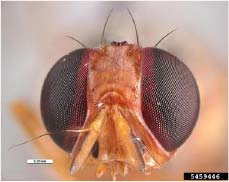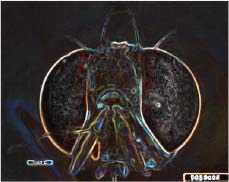GeneTip is a joint project undertaken by:
University of Bremen, Department of Technology Design and Technology Development (Project Coordination),
University of Vechta, Department of Landscape Ecology,
Testbiotech e. V. – Institute for Independent Impact Assessment in Biotechnology.
Associated partner:
University of Natural Resources and Life Sciences Vienna (BOKU), Institute of Safety/Security – and Risk Sciences (ISR)
→ http://www.risk.boku.ac.at/en/
The project comprises three work packages (AP):
Work package 1
Work Package 1 includes examining and evaluating (technical characterization) SPAGE technologies and related interventions, as well as vulnerabilities and expected effects in potentially affected socio-ecological systems. In particular, these two approaches will be combined to determine whether, and which potentially far-reaching and potentially difficult to manage chains of action are triggered by SPAGE, and which tipping points may be affected.
Work Package 1 is led by the University of Bremen.
Work package 2
Following on from the results of WP 1, the University of Vechta (Department of Landscape Ecology) will develop an ecologically-focused risk analysis. This is necessary to detect and assess the potential consequences of self-spreading artificial genetic elements (SPAGE) in order to find approaches for the identification of tipping point dynamics. Analysis will be carried out in two agricultural case studies:
• oilseed rape (Brassica napus) as a major crop of Central Europe, and
• the Mediterranean olive fly (Bactrocera oleae), a pest insect.
Data on the mobility and propagation behavior of the olive flies will be provided by the Unit of Ecological Production Systems, Directorate of Agricultural Research (NAGREF, Crete, Greece), the Greek cooperation partner of GeneTip.
Work package 3
Inter alia, Testbiotech is responsible for the participation of stakeholders from the olive industry in Portugal, Spain and Greece.
Stakeholders will be included in the analysis and assessment of possible impacts on the environment, socio-ecological systems in olive cultivation and the socio-economic effects that may be expected. Testbiotech is responsible for the organization and execution of the joint workshops, which are decisive for communication with stakeholders and project partners.
Together with the project partners, Testbiotech is also responsible for the evaluation of the results with regard to possible consequences for legislation and regulation, which may prove necessary in order to be able to react adequately to new potential hazards.
In 2018, an international conference will be held to discuss the project results with the scientific community and decision-makers involved in applications of SPAGE.
- …
- …


